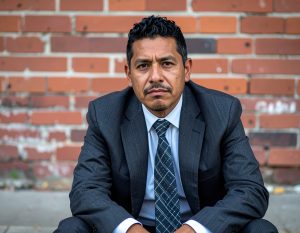The phrase “second chance” is a curious one. It implies a notion of grace, of forgiveness, and the promise of a better tomorrow. It’s a phrase often reserved for the troubled, the misunderstood, and the underestimated. But what does it mean when we apply it to a nation? Specifically, a nation as isolated and enigmatic as North Korea?
Situated on the northern half of the Korean Peninsula, North Korea, officially known as the Democratic People’s Republic of Korea (DPRK), is often labeled by the West as a rogue state. Its reputation is bruised by controversies over nuclear proliferation, alleged human rights abuses, and the country’s eccentric leadership. But, as the world rapidly evolves and changes, the question arises: Can there be a ‘second chance’ for North Korea?
This is not a simple question; it’s a complex puzzle that requires us to delve into the intricate layers of history, politics, and culture that shapes this enigmatic nation.
To understand why North Korea may be on the precipice of a second chance, we must first look back at its history. The Korean War (1950-1953) resulted in the division of the peninsula into North and South. While South Korea embraced democracy and capitalism, North Korea, under the leadership of Kim Il-Sung, adopted a model of centralized economy and stringent social controls, heavily influenced by Soviet-style communism.
Isolation and self-reliance became the cornerstone of North Korea’s policy, encapsulated in the ideology of ‘Juche’ or ‘self-reliance.’ This ideological commitment to self-reliance has had profound repercussions, insulating the nation from global influences and giving rise to a unique North Korean identity.
Over the years, however, this policy of isolation has come at a high price. Sanctions imposed by the international community due to the nuclear weapons program have hit the nation hard, stunting the growth of its economy. The Standard of living for much of North Korea’s population remains low, and the nation is often in the headlines for the wrong reasons.
So, where does the second chance come in? Believe it or not, it’s from a direction few would have expected: technology and innovation. In the past decade, North Korea has shown an increasing interest in technology, particularly in the areas of IT and software development, as a means to boost its flagging economy.
Pyongyang’s tech-savvy youth, despite the limited resources and isolation, are learning coding and software development, often out of textbooks and educational materials provided by the government. The DPRK leadership sees their tech progress as a shining beacon in the international community, demonstrating their resilience and resourcefulness.
However, the question remains: Can technology and innovation alone offer North Korea the redemption it seeks? The answer, perhaps unsurprisingly, is more complex. While technology can indeed spur economic growth, it cannot on its own redress the systemic issues that have led to North Korea’s international isolation.
For North Korea to truly seize a second chance, it must be willing to engage with the rest of the world meaningfully. This requires more than just showcasing tech prowess; it necessitates a commitment to disarmament, human rights reforms, and an openness to dialogue with other nations.
North Korea stands at a crossroads. Down one path lies continued isolation and stagnation; down the other is the uncharted territory of reform, engagement, and potential growth. As the world watches with bated breath, only time will tell whether North Korea’s leadership will seize the opportunity to give their nation a second chance at international acceptance and prosperity.
This may seem like an insurmountable task, but history has shown us that nations can, indeed, reinvent themselves. Germany and Japan, devastated by World War II, are now among the world’s leading economies. Vietnam, once ravaged by war, is


